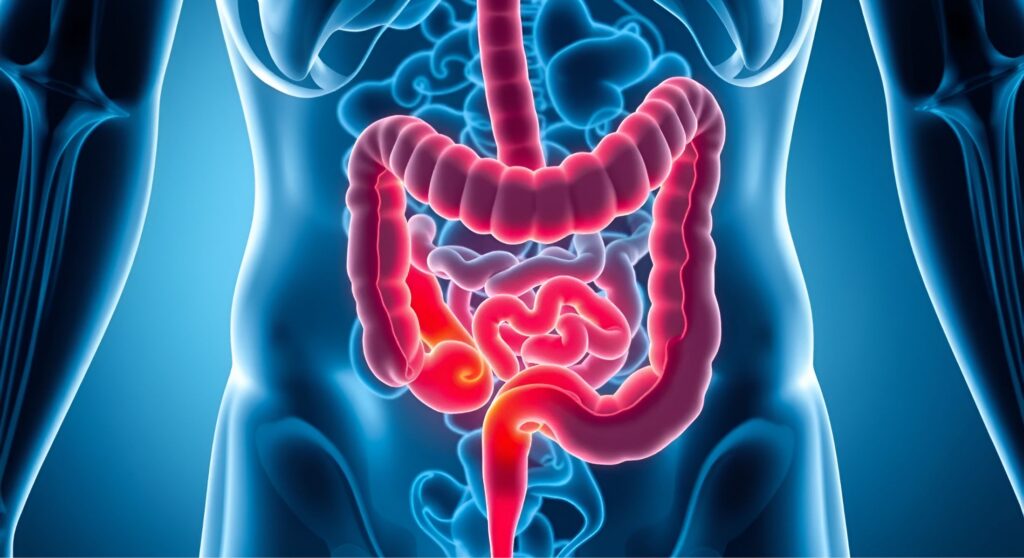The gut microbiota plays a pivotal role in the pathogenesis of inflammatory bowel disease (IBD), including both Crohn’s disease and ulcerative colitis, fueling growing interest in therapies that aim to target intestinal microbes as adjunct or primary treatment. Among these, fecal microbiota transplantation (FMT) has captured attention for its remarkable success in Clostridioides difficile infection1 and promising outcomes in mild-to-moderate ulcerative colitis (UC).2
A recent Canadian multicenter, double-blind randomized controlled trial found FMT was not effective at inducing endoscopic and clinical remission in mild-to-moderate Crohn’s disease (CD).3
Thirty-four adults with active CD were enrolled across three major universities. Patients received an initial FMT via colonoscopy followed by weekly oral capsules for seven weeks and could continue treatment with stable doses of oral 5-aminosalicylates, corticosteroids, immunomodulators, and biologics. The primary endpoint was combined clinical and endoscopic remission.
After eight weeks, none of the patients receiving FMT achieved combined clinical and endoscopic remission, while one patient in the placebo group did. However, despite a lack of remission, both the FMT and placebo groups experienced improvements in quality of life, and the FMT group showed a notable reduction in activity impairment. This suggests that microbiome-targeted therapies may be able to provide functional and symptomatic benefits to enhance patient well-being, even without achieving mucosal healing.
Microbiome analyses revealed that patients who exhibited a clinical response had stool microbial profiles more similar to those of their donors. This supports the concept that donor-recipient compatibility and microbial engraftment may determine therapeutic success. In clinical practice, this suggests a need for the development of personalized microbiota-based medicine, where donor selection or microbial composition can be tailored to patient-specific microbial profiles.
Importantly, the trial demonstrated that FMT is safe and well-tolerated with no serious adverse events. This supports the continued exploration of FMT as part of combination regimens alongside biologics, small molecule therapies, and dietary therapies designed to enhance microbial colonization and clinical response in patients with IBD.
Study limitations included the COVID-19 pandemic affecting enrollment and suspending the stool donor program, the short intervention period, and an intensive study regimen requiring weekly clinical visits.
Overall, this trial provides the most robust randomized evidence to date that FMT alone is insufficient to induce short-term remission in active CD, challenging the assumption that the success of FMT in ulcerative colitis can be extrapolated to CD. Achieving meaningful clinical responses through microbial modulation in patients with CD will likely depend on the future development of personalized live biotherapeutics with defined communities of microbes and refined treatment protocols that can be tailored to address specific disease conditions.4 In short, the path forward likely involves an evolution from unstandardized and unreproducible mixtures of microorganisms to precision-engineered microbiome therapies tailored to each patient’s unique microbial profile.
References
- Porcari S, Benech N, Valles-Colomer M, et al. Key determinants of success in fecal microbiota transplantation: From microbiome to clinic. Cell Host Microbe. May 10 2023;31(5):712-733. doi:10.1016/j.chom.2023.03.020
- Chapon J, Scanzi J, Sokol H, Pereira B, Buisson A. Efficacy of different modalities of faecal microbiota transplantation in ulcerative colitis: systematic review and network meta-analysis. Therap Adv Gastroenterol. 2025;18:17562848251369624. doi:10.1177/17562848251369624
- Kao D, Wong K, Jijon H, et al. Preliminary Results From a Multicenter, Randomized Trial Using Fecal Microbiota Transplantation to Induce Remission in Patients With Mild-to-Moderate Crohn’s Disease. Am J Gastroenterol. Nov 12 2024;120(6):1334-1344. doi:10.14309/ajg.0000000000003196
- Mkilima T. Engineering artificial microbial consortia for personalized gut microbiome modulation and disease treatment. Ann N Y Acad Sci. Jun 2025;1548(1):29-55. doi:10.1111/nyas.15352

